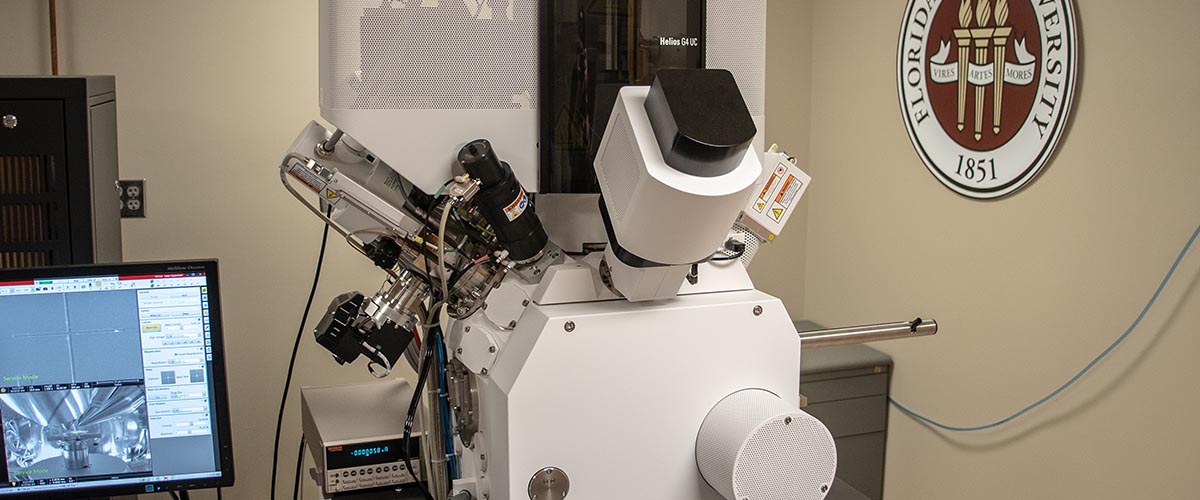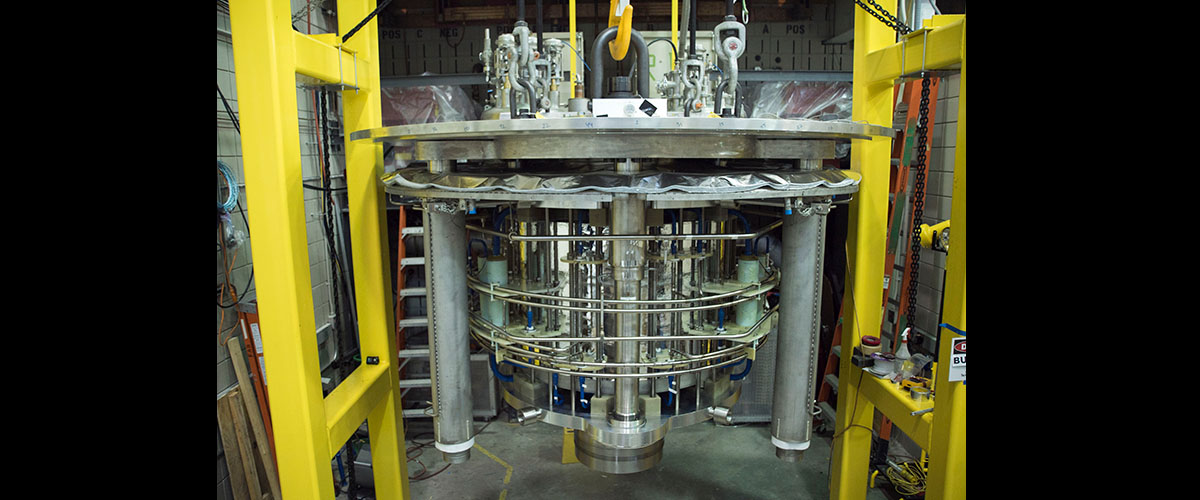Contact: Kathleen Haughney
TALLAHASSEE, Fla. — The National High Magnetic Field Laboratory is the new home of a sophisticated ion beam microscope that will allow materials science researchers to conduct a variety of experiments on the tiniest materials.
Purchased by Florida State University, where the National MagLab is headquartered, the focused ion beam microscope — also known as a FIB — is a strategic investment in the university's materials and nanomanufacturing research program.
"The purchase of this high-powered microscope is an investment in our faculty who are conducting the type of research that requires the most sophisticated tools," said FSU Vice President for Research Gary K. Ostrander. "We are looking forward to seeing how this new machine will enable our researchers to take their work to the next level."
The high-powered microscope at its core is a slicing machine. Using a finely focused beam of ions, the machine is able to hit a sample of material to etch off a layer and collect a high-resolution image of it.
"This machine will serve all materials researchers, plus graduate students and postdoctoral researchers," said Richard Liang, director of FSU's High-Performance Materials Institute. "This is a huge investment. We are now much more advanced than any other labs in the state."
David Larbalestier, the chief materials scientist at the National MagLab, said the exceptionally sophisticated can obtain an image of a material as small as a nanometer and can identify a material’s crystal lattice structure.
The microscope will be used in materials research as well as next-generation magnet research. FSU’s ownership of the machine will help the university attract top-notch faculty and graduate students, researchers said.
“The FIB makes the instrument a highly selective nano-slicer, enabling all sorts of structural and local electrical studies,” Larbalestier said.
The purchase — a joint operation that included the Office of the Vice President for Research, the College of Arts and Sciences and the FAMU-FSU College of Engineering — will allow those faculty members to be more productive because they will no longer have to travel to other locations to use such a tool.
"The new FIB scanning electron microscope is a great addition to campus and for our materials researchers," said Sam Huckaba, dean of FSU's College of Arts and Sciences. "Bringing it online was a collaborative effort leading to an arrangement and set-up that will benefit many."
FAMU-FSU College of Engineering Dean Murray Gibson echoed Huckaba's thoughts. "Focused ion beams are like nano-chisels — they let you shape a piece of material on a very tiny scale and have many important engineering applications," Gibson said. "We are delighted to have acquired this instrument for faculty and student use."
Story by Kathleen Haughney, courtesy of FSU Communications






